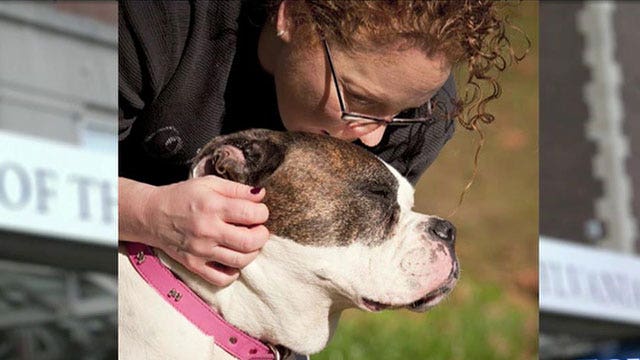From the emergency room to patient care, stress runs rampant in those on a mission to save people’s lives. To help healthcare workers, man’s best friend has a mission of his own: Bringing a smile to the employees at the Hospital of the University of Pennsylvania (HUP).
In June 2013, ER nurse Heather Matthew founded the Pet the Pooch program at HUP after realizing how much her bulldog Annabelle helped her unwind after a long day at work.
“Multiple studies show that dogs, cats are all very therapeutic and when you pet them your blood pressure and heart rate decrease...We have a pet therapy program at Penn for the patients and I thought that the staff needed a break in their day too,” Matthew said.
Now, for two hours every month, doctors and nurses can put down their charts, scalpels and stethoscopes and pick up a puppy— or kitty— instead. The therapy program is the only one of its kind in the U.S., but that’s something Matthew hopes to change.
Pet the Pooch isn’t just for these hardworking medical professionals. It can be life-changing for the dogs and cats, as well, as all can be adopted through the Pennsylvania Society for the Prevention of Cruelty to Animals (SPCA).
“When I walked in, someone was holding her and I saw her face… and I fell in love,” said registered nurse Robin Hermann, the manager of nursing research at HUP, who adopted a dog through the program.
“She’s the best, I’m so glad I got her,” Hermann said.
Medical surgical nurse Jennifer Naji adopted her dog Bandit through Pet the Pooch, too.
“He was really sick and needed someone patient who could nurse him back to health and as nurses I’d say we’re good at that,” Naji said.
Whether they’re looking for a new furry friend to bring home or not, there’s no doubt the puppy playtime is the best medicine for these doctors and nurses.
“The ER can get quite stressful, if we could have one of these little guys running around at all times it would make life a lot easier,” said ER nurse Shawn League.
